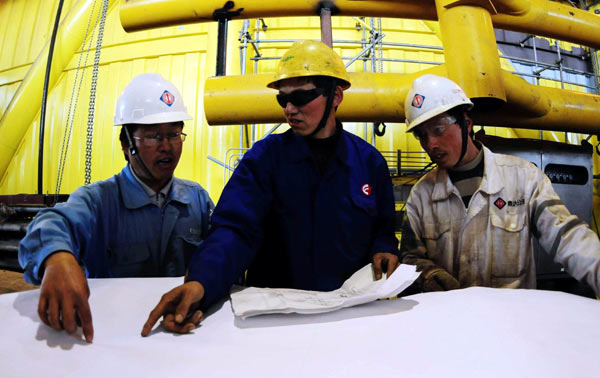|
 |
|
China National Offshore Oil Corp, the country's largest offshore oil and gas explorer, said in August 2013 that it has completed the key controlling project of the second phase of?a pipeline in Guangdong province.? [Photo / China Daily] |
The National Energy Administration (NEA) said in the plan that it encourages pipeline operators to open their facilities to each other and to users, including fuel producers, refiners, sellers and other industrial users, when pipelines have extra capacity.
Pipeline operators are supposed to provide services including transport, storage, gasification, liquefaction and compression of crude oil, product oil and natural gas, at a price agreed upon by the two sides.
The plan involves both onshore and offshore pipelines, and the implementation of the plan will be supervised by the NEA.
The construction and operation of China's pipelines are largely dominated by major State-owned enterprises. In recent years, there has been a mounting call for the business to be opened up.
China has already begun taking measures to open up the whole oil and gas industry.
Last week, Sinopec, the country's largest refiner, proposed selling up to 30 percent of its multi-billion-dollar marketing arm to social and private investors, a development which experts see as a big step to restructure the sector.
|
 |
 |
|
Sinopec private-capital-soliciting: further openings expected |
Sinopec shares tumble after deadly oil pipeline blast |
